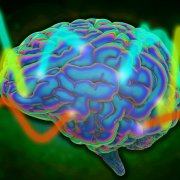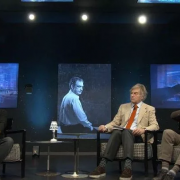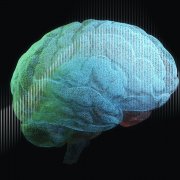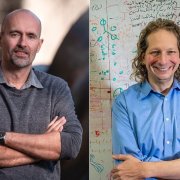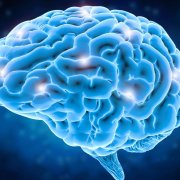January 30, 2024 - 1:45 pm
More than 80 students and faculty from a dozen collaborating institutions became immersed at the intersection of computation and life sciences and forged new ties to MIT and each other.
David Orenstein | The Picower Institute for Learning and Memory
Starting on New Year’s Day, when many people were still clinging to holiday revelry, scores of students and faculty members from about a dozen partner universities instead flipped open their laptops...
January 29, 2024 - 10:15 am
Joel Oppenheim was a wise and generous man. We were fortunate to work with him when he joined the CBMM External Advisory Committee (EAC) at its inception in 2014, and got to know him well because he served as an advisor for our diversity and outreach programs. Joel was dedicated to helping others. Though he was already a senior figure in the field and not always in good health, he attended every EAC meeting, always giving helpful feedback and...
January 18, 2024 - 9:45 am
Across mammalian species, brain waves are slower in deep cortical layers, while superficial layers generate faster rhythms.
Anne Trafton | MIT News
Paper: “A ubiquitous spectrolaminar motif of local field potential power across the primate cortex”
Throughout the brain’s cortex, neurons are arranged in six distinctive layers, which can be readily seen with a microscope. A team of MIT and Vanderbilt University neuroscientists has now found that...
January 12, 2024 - 12:00 pm
[translated by Google from Italian]
Mario Paternostro and Franco Manzitti interview Tomaso Poggio, the Genoese who changed the world
Tomaso Poggio, Genoese, a professor at MIT in Boston, has been considered one of the inventors of artificial intelligence for many years.
He is in Genoa in these days, to present his book “Cervelli, mentis, algorithms” written with Marco Magrini, yesterday he held a crowded conference-lection to scientific readings...
December 15, 2023 - 12:15 pm
“Minimum viewing time” benchmark gauges image recognition complexity for AI systems by measuring the time needed for accurate human identification.
Rachel Gordon | MIT CSAIL
Imagine you are scrolling through the photos on your phone and you come across an image that at first you can’t recognize. It looks like maybe something fuzzy on the couch; could it be a pillow or a coat? After a couple of seconds it clicks — of course! That ball of fluff is...
December 13, 2023 - 1:00 pm
Study shows computational models trained to perform auditory tasks display an internal organization similar to that of the human auditory cortex.
Anne Trafton | MIT News
Computational models that mimic the structure and function of the human auditory system could help researchers design better hearing aids, cochlear implants, and brain-machine interfaces. A new study from MIT has found that modern computational models derived from machine...
December 7, 2023 - 2:30 pm
McGovern Seminar Room (46-3189)
Daniel Mitropolsky, Columbia University
Abstract: How do neurons, in their collective action, beget cognition, as well as intelligence and reasoning? As Richard Axel recently put it, we do not have a logic for the transformation of neural activity into thought and action; discerning this logic as the most important future direction of...
December 5, 2023 - 4:00 pm
Singleton Auditorium (46-3002)
Daniel Wolpert (Columbia University)
Abstract: Humans spend a lifetime learning, storing and refining a repertoire of motor memories appropriate for the multitude of tasks we perform. However, it is unknown what principle underlies the way our continuous stream of sensorimotor experience is segmented into separate memories and how we...
December 5, 2023 - 12:00 pm
Robots that can fit multiple items into a limited space could help pack a suitcase or a rocket to Mars
By Nick Hilden
Packing the car for a road trip might seem like a straightforward enough task, but it’s never been an easy one for robots to learn—until a new study turned the robot training over to artificial intelligence. The implications of this research go far beyond a well-packed trunk and could eventually impact things ranging from how we...
December 4, 2023 - 4:00 pm
Singleton Auditorium (46-3002)
Dylan Hadfield-Menell (CSAIL)
Abstract: For AI systems to be safe and effective, they need to be aligned with the goals and values of users, designers, and society. In this talk, I will discuss the challenges of AI alignment and go over research directions to develop safe AI systems. I'll begin with theoretical results that...
November 29, 2023 - 3:30 pm
Rodney Brooks, co-founder of iRobot, kicks off an MIT symposium on the promise and potential pitfalls of increasingly powerful AI tools like ChatGPT.
Adam Zewe | MIT News
Speaking at the “Generative AI: Shaping the Future” symposium on Nov. 28, the kickoff event of MIT’s Generative AI Week, keynote speaker and iRobot co-founder Rodney Brooks warned attendees against uncritically overestimating the capabilities of this emerging technology, which...
November 20, 2023 - 11:00 am
Jörn Dunkel and Surya Ganguli ’98, MNG ’98 receive Science Polymath awards; Josh Tenenbaum is named AI2050 Senior Fellow.
Sandi Miller | Department of Mathematics
Two MIT faculty were recently honored by Schmidt Futures, a philanthropic initiative of Eric and Wendy Schmidt. MathWorks Professor Jörn Dunkel received the 2023 Schmidt Science Polymath award, and professor of computational cognitive science Josh Tenenbaum was named a Schmidt...
November 14, 2023 - 4:00 pm
Singleton Auditorium (46-3002)
Peter Dayan (Max Planck Institute for Biological Cybernetics)
Abstract:
Much existing work in reinforcement learning involves environments that are either intentionally neutral, lacking a role for cooperation and competition, or intentionally simple, when agents need imagine nothing more than that they are playing versions of themselves or are happily ...
Much existing work in reinforcement learning involves environments that are either intentionally neutral, lacking a role for cooperation and competition, or intentionally simple, when agents need imagine nothing more than that they are playing versions of themselves or are happily ...
November 7, 2023 - 4:00 pm
McGovern Reading Room (46-5165)
Pouya Bashivan, McGill University
Abstract:
Across the primate neocortex, neurons that perform similar functions tend to be spatially grouped together. How such organization emerges and why have been debated extensively, with various models successfully replicating aspects of cortical topography using cost functions and learning...
Across the primate neocortex, neurons that perform similar functions tend to be spatially grouped together. How such organization emerges and why have been debated extensively, with various models successfully replicating aspects of cortical topography using cost functions and learning...
October 31, 2023 - 2:15 pm
Mini-clocks in the human brain? UCLA researchers show how certain neurons fire with minute-scale regularities
by University of California, Los Angeles (UCLA), Health Sciences
Two studies led by UCLA researchers offer new insights into the way neurons in the human brain represent time and space – the most basic ingredients of consciousness of human existence and the primary dimensions of experience that allow us to reconstruct the past and...

